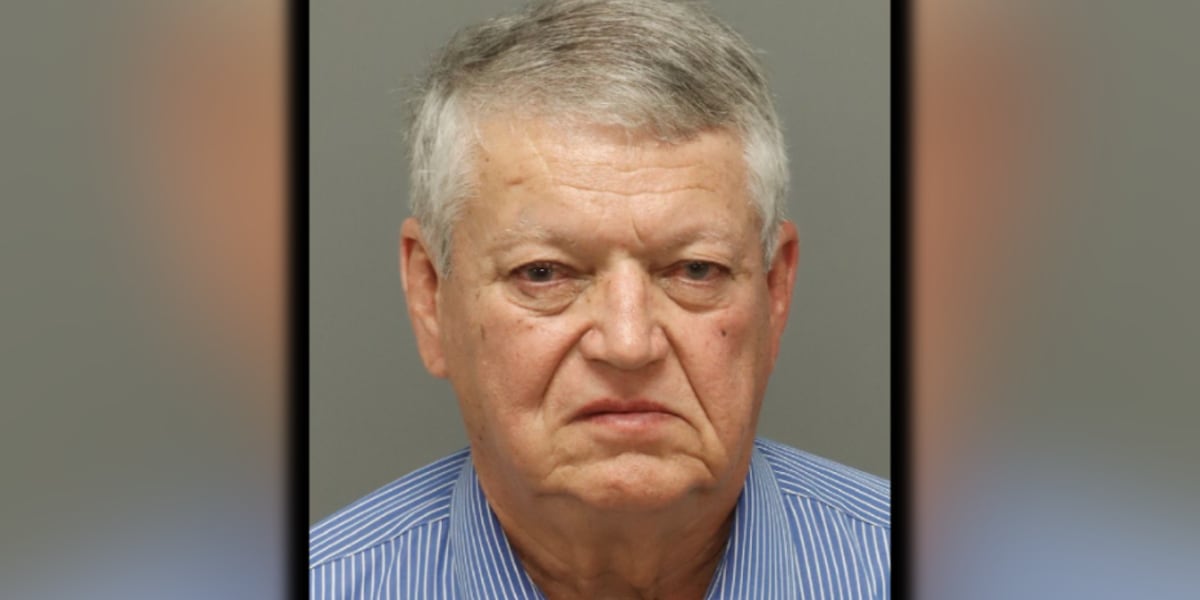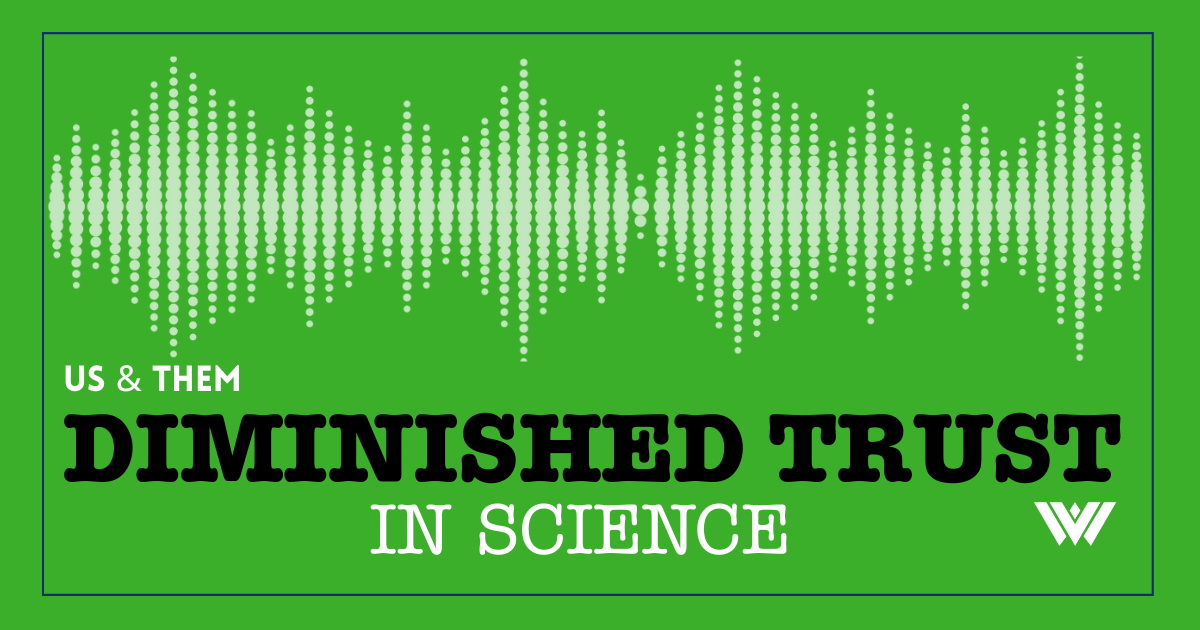North Carolina
New COVID-19 variant EG.5 emerges as cases of the virus increase in North Carolina

RALEIGH, N.C. (WTVD) — COVID-19 cases are increasing in North Carolina and across the country. The presence of the virus in wastewater has increased by five-fold since mid-June.
Wastewater monitoring is usually an early warning sign of an increase in cases and a rise in other metrics.
There are now 297 people hospitalized for COVID-19 across the state. This number has steadily increased each week since the beginning of July but this is still 80% fewer patients than the number admitted this time last August (1,054).
“I think it’s definitely a good sign. But we also don’t want to be complacent. And when we move into the fall and winter seasons, we really have the peak in respiratory diseases. We want to be sure people are taking the steps now to protect themselves so we don’t get into trouble,” explained Dr. Betsey Tilson, North Carolina’s State Health Director.
Emergency room visits for respiratory illness have also started to creep up in the last four weeks. The latest data shows that 4.1% of ER visits involved respiratory symptoms; this time last year that percentage was double (10.4%).
This upward trend is mirrored across the nation with COVID-19 hospitalizations increasing by 40% in July.
This uptick comes as a new COVID-19 variant, EG.5, is increasing across the U.S.
“It’s mutating because it’s probably easier to catch, easier to transmit,” explained Dr. David Wohl, an infectious disease expert at UNC Health.
The variant accounts for around 17% of new infections nationwide, according to estimates from the CDC. The latest strain of the Omicron family, XBB.1.16 accounts for about 16% of infections.
Tilson and Wohl said the presence of the variant may be partially to blame for the increase, but over the past few years, there has been a slight spike in infections this time of year.
“Since it’s been so hot and people have been really coming inside and collecting inside, that might be part of it and then waning of immunity, people being farther away from a past infection or farther away from their last booster,” said Tilson.
Despite the bump now, Wohl said EG.5 is within the Omicron family and doesn’t expect it to bring a massive surge.
“This new subvariant is very closely related to the variants that have been circulating for months. If you got COVID-19 within the last three months, you probably got something that’s extremely similar to this new subvariant. So I’m not too worried,” he said.
This week state health officials cautioned North Carolinians to prepare ahead of a respiratory illness season that may bring a high number of COVID, flu and respiratory illness cases.
Officials recommend people stay updated on COVID-19 boosters.
People who are eligible for a COVID-19 booster now are those whose last COVID vaccine was:
- Two months ago (people with compromised immune systems)
- Four months ago (people 65 years or older)
- Before September 2022 (everyone)
However, the U.S. is expected to release an updated version of the vaccine at the end of September that targets Omicron variants. Wohl said even with the new variant, the vaccine will still be effective, but people will have to choose when to get boosted.
“I wish that the new variant vaccine had been around now before kids went back to school. I think it’s unfortunate and that may cause us some trouble,” Wohl said.
He recommended people who are older, immunocompromised or planning travels or going back to school consider getting a booster now. He recommends all others who are up to date on their vaccines wait it out.
In addition to an updated COVID-19 vaccine, health experts also advise people to get their flu shots in September or early October. Individuals older than 60 years old should also ask their doctor about the RSV vaccine.
Here’s where to find a vaccination location: https://covid19.ncdhhs.gov/vaccines?click_source=alert
Beyond vaccines, Tilson said now is also the time to stock up on COVID-19 tests. The state still has at-home tests available for free.
Additionally, all the same precautions are encouraged.
“Making sure that if you’re sick, you’re not going out. You’re not sending your kids to school sick. Making sure we’re doing really good hand-washing and having those hand sanitizers, making sure if you’re sneezing, sneeze into your arm, not into our hands,” Tilson said.

North Carolina
North Carolina loses three more players, including early season offensive line starter

Three more players have left the North Carolina football team amid a tumultuous start to head coach Bill Belichick’s first season with the Tar Heels.
Offensive lineman William Boone, pass rusher Pryce Yates and tight end Yasir Smith are no longer with the team, a team spokesman confirmed to WRAL on Tuesday. Inside Carolina first reported the departures.
None of the players are listed on the team’s online roster. UNC (2-4 overall, 0-2 in the ACC) hosts No. 16 Virginia on Saturday.
Boone, a transfer from Prairie View A&M, started the first three games of the season. His agent posted on social media that Boone “will be pursuing a medical redshirt in hopes of having 2 years of eligibility remaining. He should be 100% for spring practice.”
Yates, a transfer from UConn, played in just one game for the Tar Heels after dealing with an injury in the early part of the season. Smith, a freshman tight end, didn’t appear in a game for the Tar Heels.
Previously, senior running back Caleb Hood announced his retirement after UNC’s fifth game of the season. Hood scored the first touchdown of the Belichick era in the season opener against TCU.
Wide receivers Paul Billups and Aziah Johnson and offensive tackle Treyvon Green also left the program earlier this season.
The most recent departures come two weeks after a WRAL report that players brought in by Belichick were receiving preferential treatment over those who were with the program before Belichick’s arrival. One assistant coach was suspended for NCAA violations tied to the report, though cornerbacks coach Armond Hawkins is back with the team.
Several sources who spoke to WRAL News, including high school football coaches, former UNC players and an NIL agent, said Belichick’s demeanor when it comes to recruiting and dealing with former players is starting to sour people from the program.
While the program has faced scrutiny and a call for an independent review for student leadership, Belichick refuted a report that he was looking for an early exit from the program and said he felt the reports of a divide in the locker room were unfounded.
“I don’t know what kind of perspective some of those people have that are saying that, but I think anybody that’s around it on a daily basis would see that,” Belichick said in an Oct. 13 press conference.
“I’m sure the players all see the improvement they’re making.”
North Carolina
North Carolina Supreme Court Lets Stand Greg Lindberg’s Civil Fraud Liability

The North Carolina Supreme Court has decided that it will not, after all, review another legal filing by convicted insurance entrepreneur Greg Lindberg.
The Oct. 17 ruling lets stand a 2023 decision by the state Court of Appeals, which found that Lindberg and some of his affiliated companies were liable for fraud by misleading life insurance companies and a reinsurance firm that he once owned.
“We hold the trial court’s conclusions of law were supported by findings of fact based on competent evidence,” the appeals court judges wrote in the 2023 opinon.
The high court in December 2023 had agreed to review the appeal court’s order, at Lindberg’s behest. But after hearing oral arguments, the Supreme Court justices changed their minds, noting that “discretionary review was improvidently allowed by order on 13 December 2023.”
No further explanation was offered. But with multiple criminal and civil proceedings stemming from the bribery conviction of and the regulatory crackdown on Lindberg, the appeal court’s 24-page opinion offers a valuable recount of some of the main aspects of the voluminous litigation involving Lindberg since 2016.
“Simply put, Lindberg created a scheme in which he caused $1.2 billon held for Plaintiffs’ policyholders to be invested into other non-insurance companies that he also owned or controlled,” the appellate judges wrote in the opinion in Southland National Insurance Corp., et al, vs. Greg Lindberg, et al.
It all began in 2014 under previous North Carolina Insurance Commissioner Wayne Goodwin, the court explained. Lindberg sought to re-domesticate Southland, Bankers Life Insurance Co., Colorado Bankers Life Insurance Co., and Southland National Reinsurance Corp. to North Carolina. Lindberg struck a special agreement with Goodwin, allowing Lindberg to break what has often been considered a cardinal rule for insurance companies – keeping adequate reserves on hand and under the control of the insurance carrier.
Instead, Lindberg was allowed to invest up to 40% of the insurance companies’ assets into affiliated business entities, and Lindberg soon invested hundreds of millions into non-insurance firms he owned or controlled.
In 2016, Mike Causey defeated Goodwin in the election and took over as insurance commissioner. Causey moved swiftly to reduce the cap on affiliated investments – back to 10%, the court explained.
Lindberg in early 2018 attempted to bribe Causey with heavy campaign contributions, hoping for a relaxation of the rules as he struggled to “untangle his affiliated investments,” the appellate judges noted. Causey cooperated with federal authorities and wore a recording device during the meeting with Lindberg. Lindberg was convicted of bribery in 2020, had his conviction overturned due to improper jury instructions, then was convicted again in 2024. He’s still awaiting sentencing.
Meanwhile, in late 2018, while Lindberg’s prosecution was pending, it became obvious that Lindberg’s affiliated companies would not meet their obligations to restore funds to cover the life insurers’ policyholder liabilities. NCDOI placed Southland and the other insurance companies under administrative supervision. An out-of-state consultant was put in charge, and deadlines were set for repayment of the assets.
With it becoming clear that Lindberg’s affiliated firms would not meet the deadlines, Southland and the other insurance companies signed a memorandum of understanding and other agreements, restucturing the financial obligations, providing a $40 million line of credit to a company owned by Lindberg, and making the affiliated firms subsidiaries of a newly created holding company, the court explained.
In 2019, Lindberg’s affiliated firms failed to meet the restructuring agreements’ goals and failed to make the affiliated businesses part of the holding company. Southland filed suit, charging fraud.
The trial court in Wake County largely agreed, and the appeals court upheld the lower court’s ruling.
“Defendants attempt to convince this Court that the MOU’s main purpose was not only to rehabilitate Plaintiffs’ companies, but to ensure Lindberg would continue to benefit from the overall transaction,” the appellate judges wrote. “This argument ignores another of Defendants’ motivations: to make money using capital provided by hardworking, North Carolina policyholders.”
Lindberg’s team claimed that the memorandum of understanding was unenforceable. The appeals court didn’t buy that argument.
“Defendants and Lindberg have enjoyed the benefit of millions of dollars of debt relief provided by Plaintiffs, yet continue to claim the MOU is unenforceable,” the court wrote.
On other arguments the court was equally critical of Lindberg’s assertions.
“Put plainly, Defendants made representations about their ability to perform under the MOU, then just two weeks before performance was due, cited those exact representations as the reason why they could not perform,” Judge April Wood wrote in the opinion.
And because Lindberg understood the intricacies of the affiliated businesses’ structures, he knew that performance under the MOU was impossible, “yet made representations that induced Plaintiffs to enter into the contract. For those reasons, we hold the trial court did not err in finding Defendants’ actions satisfied the elements of fraud.”
The appeals court remanded part of the case to the lower court to determine remedies available to Southland and the other plaintiff insurance companies.
In November 2024, Lindberg pleaded guilty to $2 billion in fraud in a related prosecution. In July of this year, a federal judge approved a plan to distribute $318 million from the sale of a Lindberg-owned software firm to the life insurance policyholders. In early October, the judge allowed the release of policyholder information so that a special master in the case could finally begin distributing funds to the victims of the fraud.
Read more about Lindberg’s bribery conviction here, and other court rulings here.
Topics
Fraud
North Carolina
Liability
North Carolina
State senator accused of drunk driving in North Carolina capital city

RALEIGH, N.C. (WBTV) – A North Carolina state senator was arrested and charged with DWI and other crimes in Raleigh over the weekend, court records revealed.
Wake County records showed 74-year-old Sen. Norman Sanderson was arrested on Saturday, Oct. 18, in the area of Edwards Mill and Trinity roads, which is about half a mile from NC State’s Carter-Finley Stadium.
Records showed Sanderson blew a 0.16 BAC on a breathalyzer test, which is exactly twice the legal limit to drive.
Upon his arrest, Sanderson was charged with DWI, having an open container after drinking and failure to obey a traffic officer.
He was released from the Wake County jail late Saturday night after he posted a $2,000 bond.
Sanderson is currently in his seventh term in the North Carolina Senate, and previously served one term in the state House.
A Republican, Sanderson represents Carteret, Chowan, Halifax, Hyde, Martin, Pamlico, Warren and Washington counties — all of which are in the northeastern corner of the state.
Also Read: State representative charged with child sex crimes in North Carolina
Watch continuous news coverage here:
Copyright 2025 WBTV. All rights reserved.
-

 World2 days ago
World2 days agoIsrael continues deadly Gaza truce breaches as US seeks to strengthen deal
-

 News2 days ago
News2 days agoTrump news at a glance: president can send national guard to Portland, for now
-

 Technology2 days ago
Technology2 days agoAI girlfriend apps leak millions of private chats
-

 Business2 days ago
Business2 days agoUnionized baristas want Olympics to drop Starbucks as its ‘official coffee partner’
-

 Politics2 days ago
Politics2 days agoTrump admin on pace to shatter deportation record by end of first year: ‘Just the beginning’
-
Science2 days ago
Peanut allergies in children drop following advice to feed the allergen to babies, study finds
-

 News1 day ago
News1 day agoBooks about race and gender to be returned to school libraries on some military bases
-

 Politics21 hours ago
Politics21 hours agoHunter Biden breaks silence on pardon from dad Joe: ‘I realize how privileged I am’





















